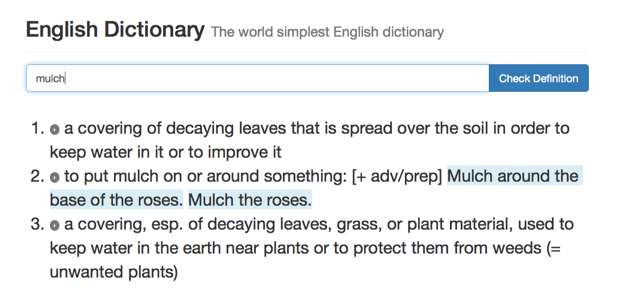Dictionary is a must-have tool for learning and improving one’s vocabulary. Having a good dictionary can make a huge difference to one’s language learning experience. It is for this reason that the world simplest English dictionary is built.
It is the world simplest dictionary that does not have all the unnecessary clutters and distractions that you will find on other online dictionary websites like Oxford and Cambridge. It has the simplest design that let users to focus on the most important things, which are the definitions of the word, and nothing else. Therefore, it does not have audio pronunciation and other supports.
It is a pure text dictionary (no images or pictures) and it allows anyone to have a quick and easy way to access to the meaning of a word.
Technical detail about the world simplest English dictionary
This dictionary is a single page web application (or commonly known as SPA). The application only has a single page and the users will only be dealing with the same page all the times and it will never be refreshed therefore making the user experience much more friendly just like dealing with a desktop application.
To achieve that effect, it is using Ajax to request and update the content together with URI anchoring to store the state of the app which also serves as its single execution path. The advantage of URI anchoring is that the users can copy the URL of the dictionary and send the meaning to others directly.
The core of the application is using the web scraper technology to leverage the wealth of information that is available freely on the internet to get its content, which is the definitions for the word that the user queried. Currently it is querying the content from 2 distinct sources. The web scraper serves as a web service (which is the engine behind the application) for the dictionary.
All queries will be cached on the server. Some the more users using the dictionary, the more caches there will be. Each query has a distinct cache. So the application is actually building its own vocabulary. This also means that the more caches it has, the less web scraping the application need to do, therefore, making the tool runs faster.
The caches are also used as autocomplete suggestions when the users type into the input textbox. The more users are using the tool, the more suggestions there will be.
So just use it.
